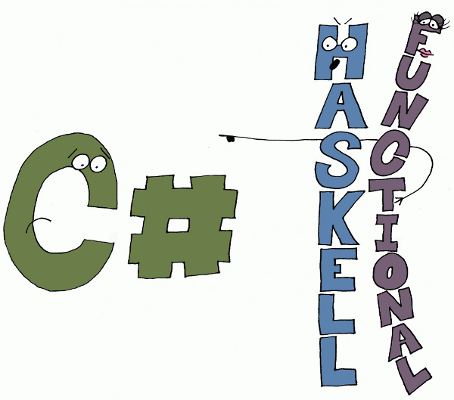A while back I wrote a little ditty on python (Not sure if that’s the correct usage of ditty but when have I ever showed a need to use words correctly?) and at the time I was wowed by how easy it was to develop with Python and (“Wish I were getting money for this plug” plug) Pycharm. Sites were so much easier to create using the Pyramids engine. Everything was wonderful.
Enter Andre and the good ship .Net. Andre has an idea of creating a site for cancer survivors (Completely non shameful plug) and at first I was a little reluctant to go back to .Net. And honestly, if it weren’t for how complicated it is to set up python on a server, I probably wouldn’t have. But being as it is, I decided to take another run at .Net 4.0 and MVC 3.0.
Until that time, there had been something nagging me about Python. It wasn’t the performance since it seemed to work very well. It wasn’t the language syntax. I really like the forced syntax since it helps to keep standards. And I like dynamic languages like a person who likes dynamic languages. The f–k was it?!… Sorry that sentence was uncalled for. I’ll try again What the f–k was it?! I mean the language was built to be easy to use and easy to build with. And honestly, it is. What wasn’t I happy with it? WHY CAN’T I JUST BE HAPPY!?!?!?1117
Well right before I went back to C# for the site, I was sort of dreading the idea of having to work in a semi non dynamic and ridgid language. But it was for a good cause and like a man trapped in a jell-o wall, I would just have to push my way through. (Ok so I’m not exactly Leslie Nielsen here)
Then something magical happened. Maybe not David Bowie Labyrinth like magical, but still some degree of magicness. What was this crazy thing? I actually remembered why I liked programming in the first place. Yes C# isn’t as easy to use as Python. Yes it’s more rigid and demanding. Yes you end up with a ton more classes and flies for that matter. BUT I think that because Python is so easy to use, it stifles imagination and creativity. Everything is so lax and unpunishing in Python that it’s so easy to forget the more intellectually (And I use that word loosely in reference to me) challenging aspects of programming. You don’t need interfaces. Mocking object for unit tests is stupid easy. Hell you can even get away with out really creating many classes. Everything is so d—ned easy.
Yeah I know, I’m nuts. I don’t think there’s any question about that. With that said, I think there is some truth in what I’m saying. If you are just a paycheck programmer, you probably could happily roll with Python as it’s structure is by far easier to work with. If you really enjoy the challenge of creating systems that can be refactored and decouple constantly, it’s kind of boring. Don’t get me wrong, you can still do these to some extent with Python but in reality there’s only so many ways you can improve what you have. Far as I know, that’s by design since Python was created more for fast prototyping and development.
I guess I would compare it to cars. Some people would rather spent more money to get the complete package. You could go and buy the new 2012 Mustang Boss and get it loaded for about 45k OR you can buy a GT and spend less than the 15k price gap on aftermarket parts. They both would end up with great performance and both could have good arguments on which is the better way to go. It just depends on the kind of person you are. Some people like the easy path because it’s most likely the faster path. The others, well the others like the journey to get where they want to get. The old “Life’s a journey, not a destination.” cliche.
Which is better? Well that’s up to you. On one hand have Python that is built for fast production. The other is C# that can provide more self challenge and to some more self enjoyment from the challenge. Not sure which side is right, but I just seem to lean to the latter.
Does that make me a horrible person? No it’s just what I like. However, the drink I thought up that’s made from freshly squeezed celebrities might. (Now with less pulp)



